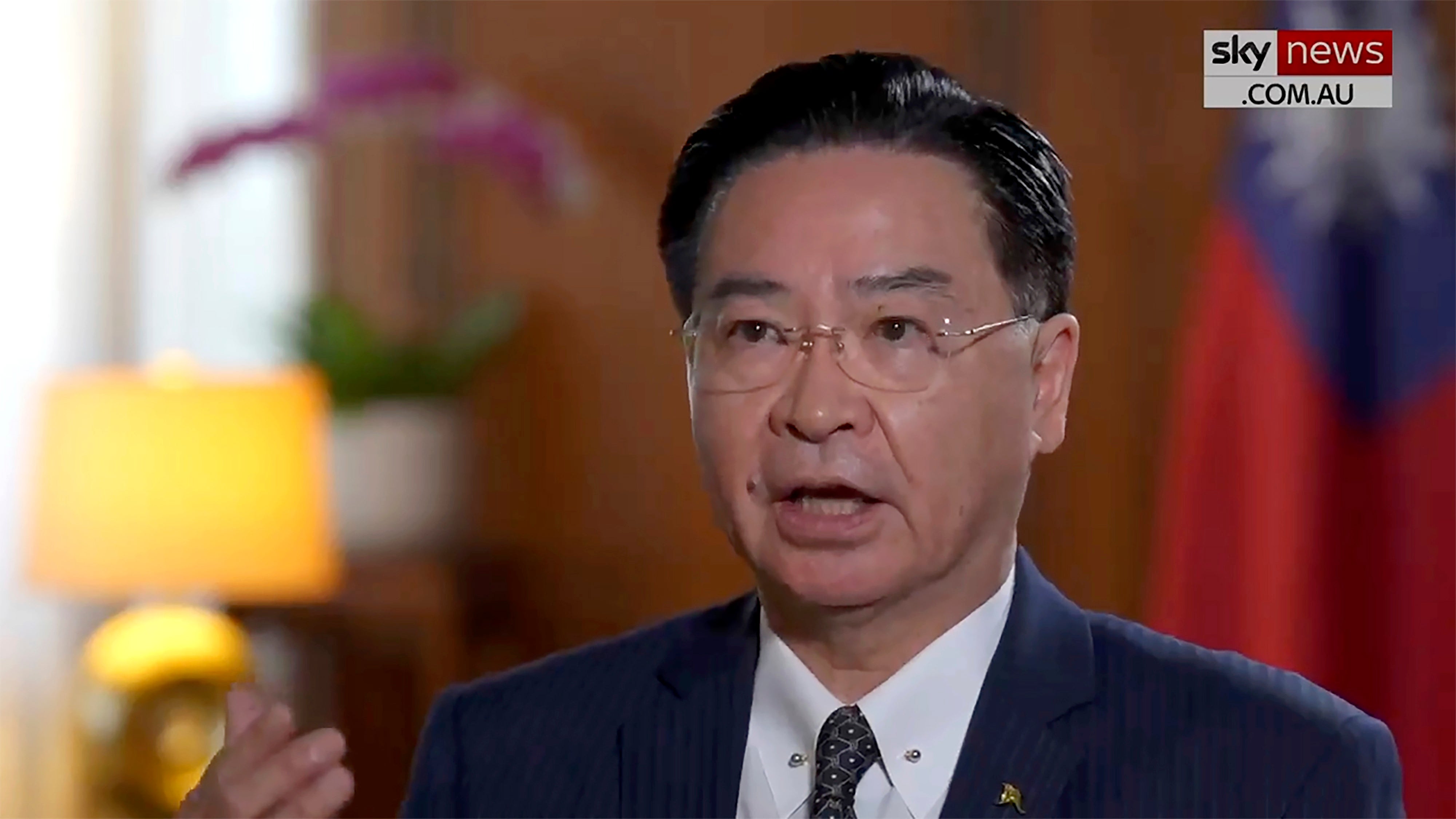Unclear who would help Taiwan in a war: foreign minister
Taiwan's foreign minister says he doesn't know what countries might help it in the event of a war with China

Taiwan intends to fight for itself in any armed conflict with China and is unclear as to what countries might stand beside it, the self-governing island's foreign minister said.
China claims Taiwan as its own territory, to be brought under its control by force if necessary, and concerns are rising about a possible armed conflict.
In an interview last Friday with Sky News Australia, Joseph Wu said Taiwan, with a population of 23 million compared to China's 1.4 billion, has to defend itself and is not asking other countries to fight for it.
However, asked who might fight alongside Taiwan in the event of a war with China, Wu answered, “This is a very good question.”
“A lot of people are debating strategic ambiguity or strategic clarity, but to us, we know our own responsibility,” Wu told the news channel from Taipei.
“Taiwan has to defend itself, the people have to defend Taiwan, this country, and we are determined to defend ourselves and we are not asking other countries to fight for Taiwan,” Wu added.
U.S. President Joe Biden has repeatedly said American forces would help defend Taiwan, although U.S. official policy remains ambiguous over if and how forces would be dispatched.
Australian Defense Minister Richard Marles said in March that his country had made no promise to support the United States in any future conflict over Taiwan as part of an agreement to obtain American nuclear-powered submarines.
Biden and the leaders of Australia and the United Kingdom have announced that Australia will purchase nuclear-powered attack submarines from the U.S. to modernize its fleet, amid growing concern about China’s influence in the Indo-Pacific.
Australian critics of the deal argue that the United States would not hand over as many as five of its Virginia-class submarines without assurances that they would be made available in the event of a conflict with China over Taiwan.
Asked if Taiwan was destined for war, Wu replied, “I certainly hope not.”
“The reason is very clear: War means devastation, not just for the one who got attacked but possibly also for other countries as well,” Wu said.
“And therefore, at this moment, even though we see that the tension has been rising and the conflict seems to be more likely and peace is less likely to maintain, but we need to do everything to prevent war from happening," he said.
Wu said Taiwan is working to maintain the status quo — essentially de facto independence without a formal declaration. A Japanese colony until the end of World War II, Taiwan split from mainland China four years later after Chiang Kai-shek's Nationalist government fled to the island ahead of the seizure of power by Mao Zedong's Communists.
Taiwan has never been part of the People's Republic of China and, while increasingly isolated diplomatically and threatened militarily by Beijing, has maintained an international presence separate from the mainland.
The U.S. remains Taiwan’s closest military and political ally, despite the lack of formal diplomatic ties between them. American defense officials have warned of the potential of conflict in coming years and U.S. forces have been bolstering their presence in Asia, most recently in the Philippines, to respond to such a contingency.
On Friday, the Taiwanese Defense Ministry said China’s military flew 38 fighter jets and other warplanes near Taiwan as part of a campaign of harassment and intimidation.
That was the biggest such flight display since a large military exercise in which it simulated sealing off the island after a meeting on April 5 between Taiwanese President Tsai Ing-wen and U.S. House Speaker Kevin McCarthy. China opposes any exchanges at the official level between Taiwan and other governments.
In addition to purchasing military hardware from the U.S. — with an estimated $19 billion of items on backorder — Taiwan has been revitalizing its domestic defense industries, overhauling training and extending compulsory national service for all men from four months to one year. While China's vast military dominates Taiwan's in almost every category, part of the island's strategy is to hold off Chinese forces long enough for outside help to arrive.
"We’re trying to prevent war from happening, and I think a lot of responsible members of the international community, especially the like-minded partners of Taiwan, like the United States, Japan, Australia, Canada and etc., we are all doing everything we can to prevent the war from taking place,” Wu said.
___
See more of AP’s Asia-Pacific coverage at https://apnews.com/hub/asia-pacific
Bookmark popover
Removed from bookmarks